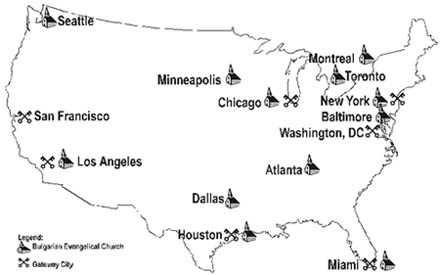9/11 REVERSAL: Prophetic Restoration of a Nation and the Glory of God
In 1994, as a prophetic warning to the nation some seven years before the 9/11 attacks, Dr. David Franklin wrote “A Call to Righteousness: Impending Judgment.” Drawing conclusions from Ezekiel’s chapter 12 desolation, destruction, dispersion, despair and prophetic hope in chapter 14, he warns that:
(1) When a nation persists in violence, the Sovereign Lord confronts and holds responsible
(2) When a nation forgets God, He allows for times of repentance
(3) If repentance is ignored, God will expose and execute judgment on an unfaithful nation.
The book continues with a call for international righteousness (p. 10) and a critique of the debt-free myth proclaiming a time of economic shift (p. 11-12). Remember, this warning was written two decades before anyone in America had mentioned foreclosure, crises or global economic crises. But my favorite chapter still is the interpretation of Ezekiel’s vision of the departure of the Glory of God (p. 20-21).
 I read this book back in 1999 and frankly had forgotten about it until 2011 when, at a young ministers training camp in the mountains of Bulgaria, we experienced what we consider the most genuine appearance of the Glory of God in our whole ministry. We wrote about it then and presented our observation at the 2012 Missions Conference at the Good Shepherd Church of God inPahokee,FL. The four points of our observation carry a tremendous prophetic resemblance to what Dr. David Franklin had proclaimed in his book 18 years ago:
I read this book back in 1999 and frankly had forgotten about it until 2011 when, at a young ministers training camp in the mountains of Bulgaria, we experienced what we consider the most genuine appearance of the Glory of God in our whole ministry. We wrote about it then and presented our observation at the 2012 Missions Conference at the Good Shepherd Church of God inPahokee,FL. The four points of our observation carry a tremendous prophetic resemblance to what Dr. David Franklin had proclaimed in his book 18 years ago:
(1) Every time God renews His covenant with His people, He shows His presence.
(2) We know that God is present in the covenant, because He shows His glory. It happened to Moses and his generation. And it also happened to Solomon several hundred years later.
(3) When a generation looses the vision of the Glory of God, God begins renewing His covenant again with a new generation.
(4) God is not satisfied with a people who know the signs and the blessings of the covenant. He rests not until He is revealed as the God of the covenant.
Bulgarian Evangelical Churches in the European Union (2021 Report)
- Bulgarian Evangelical Churches in Germany
- Bulgarian Evangelical Churches in Spain
- Bulgarian Evangelical Churches in England
- Bulgarian Evangelical Churches in France
- Bulgarian Evangelical Churches in Belgium
- Bulgarian Evangelical Churches in Italy
- Bulgarian Evangelical Churches in Cyprus
- Bulgarian Evangelical Churches in Crete
READ MORE:
- First Bulgarian Church in Chicago Opened in 1907
- Gateway Cities for Bulgarian Evangelical Churches
- How to Start a Bulgarian Church in America from A-to-Z
- Unrealized Spiritual Harvest as a Paradigm for Cross-Cultural Ministries among Migrant and Disfranchised Ethnic Groups in America Today
The Polk County TN Homeschool Network to Celebrate its Fourth Year of Connections
By Dr. Dony and Kathryn Donev, Cup & Cross Ministries – Ocoee, TN
The Polk County TN Homeschool Network was established in August of 2018 with the purpose to provide a network to help homeschool families in the Polk County, TN area stay connected. At the end of the 2019-2020 school year, plans were in place to extend the Network’s reach and launch an e-social platform. On August 13, 2020 its Facebook site was launch with a consecutive website PolkHomeschool.com in October of 2020. This coming 2021-2022 school year the Network will celebrate its fourth year of connections. Thank you to all who are making this community possible. If you are a homeschool family in the Polk area wishing to connect reach out at www.PolkHomeschool.com.
Bulgarian Evangelical Churches on the West Coast (2021 Report)
Bulgarian Evangelical Churches – West Coast (2017 Report)
- Los Angeles (occasional/outreach of the Foursquare Church – Mission Hills, CA)
- Las Vegas (outreach of the Foursquare Church – http://lasvegaschurch.tv)
- San Francisco (occasional/inactive since 2012, Berkeley University/Concord, CA)
- Phoenix, AX (occasional/outreach)
READ MORE:
- First Bulgarian Church in Chicago Opened in 1907
- Gateway Cities for Bulgarian Evangelical Churches
- How to Start a Bulgarian Church in America from A-to-Z
- Unrealized Spiritual Harvest as a Paradigm for Cross-Cultural Ministries among Migrant and Disfranchised Ethnic Groups in America Today
The Unforgotten
The Unforgotten: Historical and Theological Roots of Pentecostalism in Bulgaria
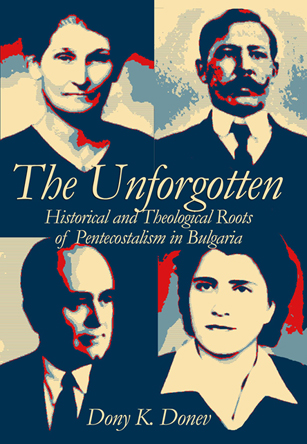 This book tells the story of four early Pentecostal families who brought the message of Azusa to Bulgaria, Eastern Europe and Russia. The research has taken over a decade to complete. It started with a brief article on the beginning of the Pentecostal movement in Bulgaria, where unfortunately many church archives were destroyed during Communism. Consecutively, the research led my wife and I on a long journey from the Southern Baptist Historical Library and Archives in Nashville, to the Assemblies of God headquarters in Springfield, the Graduate Theological Union at Berkeley, Pusey Library at Harvard, the British and Foreign Bible Society in Cambridge, and countless Bulgarian churches.We are grateful to the Flower Pentecostal Heritage Center for making readily available their denominational archives. Dr. Albert Wardin graciously opened the door for research in Nashville and Berkeley, where most documentation of Voronaev’s early ministry are preserved. Dr. Cecil M. Robeck, Jr. of Fuller provided tremendous guidance to the life and ministry of Frank and Anna Bartleman through virtually every step of their journey and every address they occupied. We are also thankful to Dr. Oleg Bornovolokov of the Ukrainian Evangelical Theological Seminary in Kiev, who helped with various KGB/FSB documents and the NKVD dossiers from Gulag.The papers included in this book were presented at Society for Pentecostal Studies meetings between 2010 and 2021. The first part of the book appeared in vol. 30 (2010) of Assemblies of God “Heritage” magazine and their December, 2010 editorial. The Bulgarian Pentecostal Union published our translation and commentary of Voronaev’s correspondence in their monthly “Evangel.” In 2011, Dr. Vladimir Franchuk, translated our Voronaev’s papers in Russian and included them in his book “Revival: from the center of Odessa to the ends of Russia” just in time for the 90th anniversary of Pentecostalism in Russia. Most of the historiographical data presented in this book is being published openly for the first time.
This book tells the story of four early Pentecostal families who brought the message of Azusa to Bulgaria, Eastern Europe and Russia. The research has taken over a decade to complete. It started with a brief article on the beginning of the Pentecostal movement in Bulgaria, where unfortunately many church archives were destroyed during Communism. Consecutively, the research led my wife and I on a long journey from the Southern Baptist Historical Library and Archives in Nashville, to the Assemblies of God headquarters in Springfield, the Graduate Theological Union at Berkeley, Pusey Library at Harvard, the British and Foreign Bible Society in Cambridge, and countless Bulgarian churches.We are grateful to the Flower Pentecostal Heritage Center for making readily available their denominational archives. Dr. Albert Wardin graciously opened the door for research in Nashville and Berkeley, where most documentation of Voronaev’s early ministry are preserved. Dr. Cecil M. Robeck, Jr. of Fuller provided tremendous guidance to the life and ministry of Frank and Anna Bartleman through virtually every step of their journey and every address they occupied. We are also thankful to Dr. Oleg Bornovolokov of the Ukrainian Evangelical Theological Seminary in Kiev, who helped with various KGB/FSB documents and the NKVD dossiers from Gulag.The papers included in this book were presented at Society for Pentecostal Studies meetings between 2010 and 2021. The first part of the book appeared in vol. 30 (2010) of Assemblies of God “Heritage” magazine and their December, 2010 editorial. The Bulgarian Pentecostal Union published our translation and commentary of Voronaev’s correspondence in their monthly “Evangel.” In 2011, Dr. Vladimir Franchuk, translated our Voronaev’s papers in Russian and included them in his book “Revival: from the center of Odessa to the ends of Russia” just in time for the 90th anniversary of Pentecostalism in Russia. Most of the historiographical data presented in this book is being published openly for the first time.
SEE MORE at Amazon.com by clicking this link
An Open Letter about the Global Crisis of Civil Society since 2020
An Open Letter about the Global Crisis of Civil Society since 2020
Darin Stephanov, Ph.D. (historian, Harvard)
Bistra Strechkova, microbiologist (formerly with Novartis Pharmaceuticals
Dear friends, colleagues, and acquaintances we have crossed paths with at some point in life:
My wife Bistra and I hereby commence this long and difficult letter to you, which we consider our civic duty. We wish to share our reflections about various aspects of last year’s (and ongoing) crisis, as well as to express some well-justified misgivings about the future on the basis of all that has come to pass over the course of the past year and to this day. We will be much indebted to you, if you can find the time and peace of mind to read through to the end.
As you know, officially it all began in China at the beginning of 2020. Chinese scientists were the first to study the fluid from the lungs of several patients, ascertain the presence of a coronavirus (after rejecting the possibility of a bacterial agent due to the lack of effect of antibiotics) and introduce a total socioeconomic lockdown. Well, we have had viruses before, such as West Nile, SARS, MERS, avian, swine and so on, on average once every few years since 2001.
The last measure, however, is unprecedented in world history. OK, we can say this is how the Chinese Communist Party (CCP) does business. For example, they lock up millions of Uighurs in education camps in Xinjiang for an unspecified period of time, without outside contact. A similar fate, except labor camps, has befallen about 500,000 Tibetans a month or so ago. Allegedly, in the middle of the last century, the CCP used to employ human chains of tens of thousands of people passing along reed baskets full of dirt, hand by hand, while digging up dams. CCP is as CCP does, BUT
For reasons unknown, the entire protocol for fighting the coronavirus was then suddenly exported with no reservations, discussions, criticism or alterations whatsoever to almost all of the rest of the world. When did we last trust the CCP so much and about what else? Never. About nothing. The wave of lockdowns, officially for three weeks to “flatten the curve” rolled throughout the western countries (except Sweden) like a wave of falling dominoes. Next, the startled politicians delegated all power to the experts. Let’s take the example of one major expert – Neil Ferguson of Imperial College London, who, not for the first time, pulled out a horrific forecast for hundreds of thousands of (in this case, coronavirus) dead in the UK and millions in the US, should a lockdown not be implemented. Of course, it turned out to be totally wrong, as had been the case many times before, but yet again no one called him to task. He just started keeping a lower profile at SAGE (Scientific Advisory Group for Emergencies) since May 2020 due to breaking the curfew to receive his illicit lover.
Thereafter, we all got new words and unprecedented measures, which changed our realities, such as “new normal”, “social distancing”, “superspreader”, “elbow greeting”, “contact tracing”, “self-isolation,” and on and on. Besides lockdowns, we have never had:
- medical martial law
- checkpoints
- mass testing
- mass quarantines
- mass contact tracing
- curfews
- asymptomatic sick people
- mask wearing, not to mention mandatory
- the introduction of mandatory vaccines in many countries (often indirectly, seemingly voluntary, but with multiple social mechanisms of coercion), strong pressure for the rest (more on the subject below)
- a limit on the permitted distance from one’s home (5 km. in Australia)
- a daily personal limit on the time spent outdoors (1 hour in the UK)
- mandatory test results on arrival from abroad (Greece, New Zealand and many others)
- isolation/quarantine camps in various stages of planning/execution in New Zealand, Canada, USA (NY Senate Bill 416), Germany (?!!), etc.
and so on.
Let’s work our way from the periphery to the core of the matter. I (Darin) happen to specialize in microhistory so I tend to pay more attention to words and their context than most people. “Lockdown” is a prison term. The measure goes into effect during a prisoner escape. “Quarantine” has previously been enforced only upon a well-founded suspicion for the presence of an infectious disease or on arrival from a risky region, and not indiscriminately, on predominantly healthy people. “Social distancing” is an oxymoron (a combination of contradictory words). I recently read that the German Chancellor, Angela Merkel, would give Germans “amnesty” from the lockdown for Christmas. No comment. One can clearly detect elements of Orwellian doublespeak. George Orwell’s book “1984” (1948) and Aldous Huxley’s book “Brave New World” (1932) have been tremendously helpful, like guide books to life over the past year and on to this day.
Hmm, is it possible to find doublespeak elsewhere as well? For example, the authorities saying they are “saving lives”, when they are doing exactly the opposite? It is not only possible, but predictable, realistic and readily provable. It is just that you are not going to hear about it on corporate media. After many months of locking down the people and the economy and barring access to hospitals for all except COVID patients, now we can calculate the number of the chronically sick (diabetes, cancer, heart disease, etc.), who are dying at home due to a prolonged lack of regular medical care. Let’s add the number of suicides (there is a proven direct proportionality between the percentage of unemployment and the number of suicides), as well as the victims of chronic alcoholism, domestic violence, mental disease and so on.
But why limit ourselves only to other types of victims when there are effective ways of swelling the numbers of COVID sick and deceased themselves? For example, we could gradually increase the number of COVID symptoms shared by a number of other diseases, with none unique to the new disease. In this way, we can reclassify ordinary flu and pneumonia as COVID. According to the official statistics, in one of Canada’s provinces last year there were 6 (?!!) cases of flu. When an independent journalist (Jeff Berwick) reflected this little known fact in his report, the number on the respective webpage was changed to “negligibly few.” There are other ways as well. Here is an example from the US first announced by Dr. Scott Jensen, a state senator from Minnesota. For a diagnosis of ordinary pneumonia, hospitals receive 4,000 $, for COVID – 13,000 $, for intubation – 39,000 $.
Another widespread method involves the writing of death certificates. For example, we ignore completely all types of comorbidity and every deceased WITH COVID we put down as deceased FROM COVID. In Italy, which, at the beginning, so scared the rest of the world with its high mortality, the health minister admitted already back in April 2020 the “liberal” counting of COVID victims who have died with 1, 2, 3 or more other conditions. With all comorbidities accounted for, the final number amounts to only 2% of the original number. In the US, doctors were given new instructions on the writing of death certificates. In passing, we could mention the multiple documented cases of superimposition of COVID on suicides, deaths from gunshot wounds, car and other accidents, according to relatives.
Thus we arrive at the root of the problem with COVID. According to their inventor himself – Cary Mullis, Nobel Laureate in Chemistry for 1993 – the RT-PCR tests are NOT FIT FOR DIAGNOSING infectious diseases or measuring a viral load. (if this or other hyperlinks do not work, read on to find out why). Their main and proper use is in science or criminology when one has a limited quantity of genetic material and wishes to multiply it in order to be able to study it. Moreover, there is no common standard and each lab has its own protocol for cycles of multiplication. It seems that, above 35 cycles, just about every test gives a positive result. And these are “the most precise” tests! The “rapid” tests are not even worthy of our attention here.
Even billionaire Elon Musk, who is involved in vaccine development himself (the German company Curevac), recently shared that out of 4 tests he took simultaneously under identical circumstances, 2 came out positive and 2 negative. As a matter of fact, this is not a test in the true sense of the word, but a technique for quick and cheap multiplication of genetic material. If a person has ever had flu or has taken a flu vaccine recently, there is a good chance they may get a positive result. According to Dr. Mullis, who, sadly, passed away in August 2020, the PCR tests only confirm the Buddhist adage that “everything is contained in everything else.” In short, for the above-mentioned reasons, there is no way for us to know, based on these tests, how many people are sick or are dying and from what exactly. What is even worse is that the system is entirely open to all kinds of potential manipulation in the direction of production or not of numbers and “clusters” of the disease at all times (for example, before and/or after the administration of a COVID vaccine).
Let’s take a step back.
My (Darin’s) late father used to emphasize the importance of independent free thinking since my early childhood (“A majority does not by default imply truthfulness.”) Today this point is more important than ever. Something else he used to stress, blessed be his soul, long before the beginning of the internet and the explosion of media, was the vital significance of varied and reliable information flows for the proper functioning of just such thinking.
A while ago, I came across a statement by an American anthropologist, the name escapes me at the moment, according to whom the split and divergence between reality as portrayed by the media and reality proper had begun already in the 1960s. I suppose an element such as this has always existed. Those who remember the socialist period in Eastern Europe firsthand know how one used to read “between the lines” the official newspapers. But who could have predicted that since the inception of the “transitional period”, this process would only become faster and more complicated? Everywhere. After decades of taking both electoral campaigns/politics as a whole and the leading corporate media’s news broadcasts to a lower and lower common denominator, the two realities are now jarringly, unrecognizably different. Just think of the movie “They Live (1988).”
Numbers are also helpful. In the US, 90% of the TV market is controlled by 5 mega corporations. In Germany, 98% of the printed popular periodical press is controlled by 5 owners. Therefore, it should not come as a surprise that investigative journalism, “the fourth power” is no longer welcome on mainstream TV, radio, newspapers, magazines, etc., all of which act more and more like propaganda branches of certain coalescing corporate, state and/or transnational interests. Orwell’s “Ministry of Truth.” What better example than the mass projected monovision of the corona crisis? Have you noticed any layers of meaning, contention, a striving for an open discussion, or toleration for a divergence in viewpoints?
No. Differences, if acknowledged at all, are instantly castigated. Eamonn Holmes, an ITV (UK) host was forced to issue a public apology and almost lost his job for the mere question whether the “other” opinion should be given the floor. If someone expresses a point which does not toe “the party line” via Zoom or skype, the connection tends to mysteriously disappear (we are aware of at least two such instances – in the US and our native Bulgaria). What we do get is the automatic disqualification of alternative viewpoints with the alarming tendency towards their criminalization. Keywords: “fake news”, “conspiracy theories,” “Russian hackers”, “far right” and so on. How many of you know that the term “conspiracy theory” was coined by the CIA for the purpose of prompt discrediting of alternative versions of the assassination of JFK? Of course, we all know what a simple, unambiguous event that was, like an open book . . .
Here is a list of the main tactics employed in debunking “conspiracy theories” on corporate media:
1) Complete silence on all points of the argument; the word “conspiracy” removes any need for a one-sided commentary, much less a two-sided discussion.
2) Isolation of a point of the argument from its natural context, followed by its blow-up, out of all proportion, and its subsequent presentation as THE entire original argument, which can only invite ridicule. Example: “5G causes COVID.”
3) Direct character-assassination of the “conspiracy theorist” once more without the slightest need whatsoever to address their actual argument.
4) Indirect character-assassination of the “conspiracy theorist” by way of a spurious insertion of a random imaginary connection between their argument and obvious hoaxes such as that “Elvis is still alive or that the Moon landing was shot in a Hollywood studio.” Example of victim: Talkradio host Julia Hartley-Brewer in response to her questions to Chris Hopson, UK’s National Health Services (NHS) Providers Chief Executive in Jan. 2021.
5) Tendentious discussion of the imaginary motives of the “conspirators.” Example (a paraphrase of the words of an English radio host): “The anti-vaxxers in the UK know that their statements can hurt people’s health. Why do they make them then?”
What is self-evident? At no point is the original argument faithfully presented in its entirety or discussed on its own terms. Never is the floor given to alternatively thinking people. Why? Should it not be easy to refute them since “Science” is on our side?
Instead of a two-sided discussion on a level playing field, we get censorship – 1) by way of what is said/shown or not, and 2) by way of what is taken off air. Speaking of 1), how many of you know about the large anti-lockdown protests in Berlin at the beginning and the end of August 2020? Based on drone pictures of the dense crowds in the heart of Germany’s capital, fair estimates range in the ball park of 1 million people. What number did the mass media give us? 18,000. Speaking of 2), an ever accelerating purge of “otherness” is in full swing on platforms and social networks such as youtube, facebook, twitter, linkedin, vimeo . . .
Needless to say, for the good of the people. Actually, it had commenced little by little already several years ago, but picked up speed with the corona crisis, under the unassailable pretext of, what else, the health of the people. The culmination thus far came on October 15, 2020 in connection to the upcoming US presidential elections. Inconvenient videos, lectures, even scientific articles or statements which are at variance with the commonly accepted (commonly imposed?) narrative tend to disappear fast. Without prior warning, explanation, or right of appeal. It would not be an exaggeration to say that the digital Library of Alexandria is on fire. By the looks of it, the private webpages of independent journalists and all manner of free thinking folk will be next.
By the way, most official “fact checkers” of alternative viewpoints tend to be sponsored by the same people who are the object of criticism in the first place. The same goes for more mainstream journalism than you can imagine. As a Bulgarian proverb goes: “The thief cries out – “Catch the thief!”” Understandably, James Corbett, an independent journalist, asked the question: “Who will check the fact checkers?” That is why Richard Grove, another freelance journalist, recently started a joint project of about 40 truly independent fact checkers.
What recently came to light was the coordination of censorship between Facebook, Google, and Тwitter, during a senatorial questioning of Mark Zuckerberg. To those who still hold on to an idealistic image of the role of Google and who may not be aware of Google’s, as well as Facebook’s connections to the military industrial complex, from their very foundation, we recommend the excellent documentary „The Creepy Line (2018).” In it, among other things, you can discover curious little facts about the algorithms and filters for Google keyword searches (just try the same keyword search with different browsers and search engines, and see what you get), as well as about the dark side of social networks in general. It may be good for gmail account holders to keep in mind that everything (including drafts and deleted emails) gets recorded and kept by Google.
If all had been well with the mass media, the message in a situation like this would have been something like: “Let’s calm down the people. We have a problem, but we will pull through together.” Instead, we all witnessed a relentless global campaign of fear porn. In the US, there are people who have not left their houses since March 2020.
Which is one of dominant factors for a weakened immune system? Stress as a whole and fear in particular. Another key factor in this respect? Staying at home under lockdown (house arrest?). What did months (almost a year) of draconian measures accomplish in the fight against COVID? On the contrary, things got worse. Despite this, the already severe restrictions keep getting tighter all the time . . . After the COVID psychosis was maintained over the summer thanks to the PCR tests, now we find ourselves in the midst of the winter flu season so there is a good chance things will only deteriorate until the spring. A downhill for COVID operators.
The virus is not isolated and purified. Instead of a black-and-white photo, all we get its ubiquitous colored CGI version (it is more frightening). None of the four postulates (video taken down by youtube, “mirrored” up again) of Robert Koch, one of virology’s founders, has been fulfilled for COVID so we have no golden standard for the tests. However, we have “experts” who can connect the virus to erectile dysfunction or depression, a sense of imaginary smells, or even can tell us what people sick with COVID see at the moment of death . . . ?!! We seem to have entered a dark age of superstition, obscurantism, and witch hunting. We seem to have gone back 1,000 years.
The whole thing looks more and more like a Covidian cult, which exacts from its members, all of us, complete unquestioning obedience in the execution of absurd, alogical, unscientific directives. Let’s mention quickly the masks – an unprecedented measure in our lifetimes – backed up by no compelling scientific investigation whatsoever. On the contrary, there are many and convincing scientific studies and depositions about the neurological harm caused by them even to healthy individuals, as well as a plethora of practical video demonstrations of their utter ineffectiveness (video taken down by youtube, refugee shelter at bitchute) in stopping aerosols in either direction (all except gas masks). Moreover, there are credible scientific studies about the harm, on psychological basis alone, done to patients cared for by a doctor wearing a mask compared to patients cared for by a doctor not wearing a mask. Recently, we read about a study showing that 85% of the COVID sick had worn correctly and consistently their masks. So what? The people should do as they are told, and that’s it … And when they may wish not to harm themselves, they will be fined and even arrested.
Thus, we get to the vaccines. The argument constructs itself. Suffice to point out a few facts and make a list of the unprecedented steps.
Facts:
1) The average period for vaccine development prior to COVID = 20 years.
2) The shortest period ever for the same (most conservative estimate) = 4 years.
3) The number of vaccines against coronaviruses, which are known since the 1960s = 0.
4) Effectiveness of the common flu vaccine = 21%.
5) You can inform yourselves about the ingredients of previous vaccines here and here.
6) The number of previous vaccines developed by Moderna = 0.
7) The total amount of fines for vaccine injuries paid out by Pfizer since 2000 = 5 billion $
And so on.
Unprecedented steps in the development of COVID vaccines:
1) Mass-scale solicitation of funding for the large pharmaceutical companies (Big Pharma) by way of a teleconference of world leaders (40 countries, not counting the US, which separately donated around 2 billion $) back in May 2020. Total sum collected during said conference = 8 billion $. NB: With a world population totaling about 7.8 billion people, we leave it up to the reader to calculate the size of potential COVID vaccine profits.
2) Easing and acceleration of procedures regarding vaccine development and approval. Omission of the animal trial phase. Permission for company applications for final approval by the respective institutions (CDC in the US, EMA in the EU) while Phase 3 is still incomplete, that is, before the actual completion of vaccine development.
3) Preliminary purchase of vaccines from all leading candidates – Pfizer/BioNTech, Moderna, Astra Zeneca, Johnson & Johnson, etc. – months before final approval of any of them. Total number pre-purchased by the EU as of Dec. 21, 2020 = 1.3 billion doses.
4) One-sided/non-transparent, therefore unverifiable/unprovable determination of the percentage of effectiveness of COVID vaccines by their own producers in a manner reminiscent of auction bidding: Pfizer started with 90%, Moderna raised the stakes to 94.5%, Pfizer corrected itself up to 95%; Astra-Zeneca began with the extremely inadequate 70%, but corrected itself up to 90%. (NB: Compare with Fact 4) above)
5) The three leading vaccines are experimental, that is, without precedent in world history – mRNA (Pfizer and Moderna) or adenovirus vector (Astra Zeneca). All of them essentially amount to gene therapy, with no one having any idea whatsoever about the possible consequences.
6) Removal of any legal responsibility from the producers globally (in the US, it was removed back in 1986) on identification of side effects, be they short- or long-term, or damages to human health, be they temporary or permanent, including the death of COVID vaccinated people.
7) Ongoing discussions of a system of pharmacovigilance, i.e. surveillance of the biological parameters of COVID vaccinated people over a period of 24 months by Google (US). The next step, already under intense deliberation, is the deployment of AI for “pre-diagnosеs” of sicknesses days or weeks before the human subjects become aware of being sick themselves for the purpose of timely administration of the respective medicines.
8) A continuous, far-reaching campaign of agitation of the public about the need for mass-scale vaccination. Widespread condemnation and criminalization of the image of anti-vaccine activists within the framework of the newly ascendant societal model of “biosecurity” (see below). An official discussion of measures for combatting “vaccine hesitancy.” A marketing campaign to popularize COVID vaccines on the basis of purely psychological factors, including the recruitment of “stars” and other influencers with millions of followers, a certain first male vaccine recipient by the name of William Shakespeare in the UK, etc. in lieu of the provision of strictly scientific information (US, UK). Removal of all legal impediments to the open advertising of COVID vaccines on mass media (UK); payment of 12.58 pounds sterling directly to every GP for each administered COVID vaccine. Issuance of a paper card (wallet size) to each COVID vaccinated person (US).
9) Placement of the military at the helm of vaccine development and administration (US, Canada, UK).
10) Alteration of the definition of “herd immunity” amounting to the removal of one’s acquisition of natural immunity in consequence of having overcome a certain disease by the World Health Organization (WHO) on the eve (Nov. 13, 2020) of the introduction of COVID vaccines. A measure such as this opens the door to mass-scale vaccination for each subsequent virus.
And so on.
Formally, COVID vaccines may remain voluntary, but what freedom of choice would people have, if access to employment, school, public transportation, shops, concerts, sports, restaurants, etc., as well as foreign travel depend on COVID passports? Let’s not kid ourselves, should passports for COVID vaccination be introduced, other vaccinations can be easily added. The virus will inevitably mutate, there may be other viruses too . . . Not to mention that in the US there are presently 276 vaccines (Robert F. Kennedy Jr.) in various stages of development and, under the “new normal,” it will probably not be so hard to include many of them in the mandatory vaccination calendar after COVID. Ever wondered about the size of profits from a single vaccine in the mandatory vaccination calendar in the US for a single year? About 30 billion $. Wouldn’t it be interesting to know how much money a popular morning program of a leading TV station in the US made for a single week from Big-Pharma ads already years ago? About half a million dollars.
Naturally, many players are trying to capitalize on the corona crisis (and many already have), but the largest and potentially dangerous scheme is publicly presented by Klaus Schwab (a student of Henry Kissinger, who is a student of William Elliot, all at Harvard) – founder and chairman of the World Economic Forum (WEF, allegedly “weforum” when in fact more like “theyforum”), which will convene virtually for its annual meeting next week. Once more, let’s pay close attention to words and slogans – „the Great Reset“, “the Fourth Industrial Revolution“ (check 9:57 on free thinking by Prof. Farahani, Duke U.), „Build Back Better” – recently spoken by politicians such as the prime ministers of the UK and Canada, as well as the new American President Joe Biden. It would be natural to expect that the first term means “Great Restart”, but Mr. Schwab rejects this interpretation on p. 121 of his book – “This [return to the old normal] will not happen, because it cannot happen.” – by the same name (plus, COVID), which came out in May 2020. To our mind, it might be better to think of it as “the Great Beginning [of a radically new system]” or “the Great Transformation.” In actuality, it would be more of a “Great Making of Have-Nots” (for the actual accompanying 2016 WEF video, recently taken off their webpage by themselves, click here), but let’s not jump ahead of ourselves. If you take a closer look at him, herr Schwab may remind you of Blofeld from SPECTRE (the James Bond movies). The problem is that he has many influential supporters, including, besides the ones mentioned above, philanthro-capitalists like Bill Gates, George Soros and the members of the Coalition for Inclusive Capitalism, the Pope, Prince Charles, Kristalina Georgieva of the International Monetary Fund, Antonio Guterres of the United Nations, the president of Маstercard and many others.
Behind the veil of specious terms such as ‘sustainability’ (think, centralized rationing), ‘inclusion’ (think, total dependence), and ‘equality’ (think, serfdom) lurk ideas of social engineering of the deepest kind and on the largest (global) scale. On WEF’s webpage, you can find all manner of excruciatingly detailed country-by-country “transformation maps,” which you can see with a free membership, including for education, and even propaganda for little children (check 2:00). In this vein, the Canadian Prime Minister, Justin Trudeau, recently publicly admitted that the coronavirus had only accelerated plans which had been in the making for years.
Hmm, let’s sketch in broad strokes the economic side of lockdowns, which have been going on, with some interruption for almost a year, with no end in sight . . . Let’s say that at the beginning it was not clear whether we could fight the virus in this way, but what was very clear on such a trajectory, and which inevitably happened (and keeps happening every day) was the annihilation of hundreds of thousands (millions?) of small and mid-size businesses of independent producers, the vast majority of which will never come back, and the resultant ruination of many tens of millions of people. Not by COVID, but by the governments. One has to agree that it all looks a lot like a controlled demolition of the world (especially, Western) economy. What we have here in plain sight is the removal of the economic independence of a large percentage of the population, which comprises the middle class, the backbone of Western democratic societies. It reminds one of the “saving of lives” from which many people died and continue to do so.
Meanwhile, quite predictably, the billionaires pulled ahead by about 2 trillion $ in just 6 months reaching a total net worth of 10.2 trillion $ (as of Oct. 2020). Jeff Bezos (183 billion $) of Amazon has a chance to become the world’s first trillionaire in the foreseeable future. If we combine this consolidation of economic activity with the accelerated automation of labor (both blue- and white-collar), already under way, which threatens 70% of the working population with unemployment, we reach “favorable” conditions for the new reforms (see below).
Let’s define two more keywords, which have been flying under the radar so far, but which everyone should know about – ‘technocracy’ and ‘transhumanism.’ The former is a new economic and social system of resource management and distribution by unelected “experts-technocrats” and their algorithms. Whereas this movement dates back to the 1930s, its platform was recently brought up to speed with the new technologies and possibilities of the 21st century. The latter is a deliberate/artificially induced and permanent change of human nature, relationships, society, and all other human activities. Here is a quote from a Mr. Schwab speech before the Chicago Council on Global Affairs, as well as (in several instances, in paraphrase) from his book The Fourth Industrial Revolution (2016): “In the end, the fourth industrial revolution will lead to the fusion of our physical, digital and biological identities . . . “ This fusion of humans and machines is the center of focus for theoreticians such as Ray Kurzweil of Google (“the singularity”), companies such as Elon Musk’s Neuralink, etc.
Do you see where we are going with this? On the one hand, for the first time in the history of modern civilization, technologies for the full centralized control of the populace are available. Moreover, the foundations for a multibillion- (multitrillion-?) dollar technological infrastructure are being laid globally as we speak. Unlike the virus, it will be open-ended. On the other hand, there is zero transparency and public discussion about the needs, risks, nature, safety, parameters of application, and control, let alone the ethical side.
Hmm, is it possible that the corona period, regardless of its mysterious origins, may be used as a springboard [a period of initial psychological entrainment/conditioning of the masses] for life under the new, artificially created circumstances and passive/uncritical reception of the upcoming reforms? The introduction of a digital dollar/euro/yuan/yen, etc., the death of cash (officially, due to the virus; really, to remove any form of alternative, not to mention untraceable, payment), the introduction of universal basic income (UBI, in Finland and Germany trials are already underway) for all ordinary people (starting with the recently ruined) in exchange for enforced, uni-directional transparency and obedience (a system of social credits), a new “social contract”, a new social hierarchy . . . In China, for years now, if a person jay walks, the respective fine has already left their bank account before they even have enough time to get back home. An act like this leads to a loss of points. On falling below a certain level, a person cannot rent an apartment, get credit, board a train or a plane, etc. Such was the unfortunate state of about 10 million people in 2018.
Is it possible that the masks, social distancing, and physical isolation are not temporary? For example, children’s dolls wearing masks have been on sale for months, mannequins wearing masks can be seen gracing shop windows, new airport arrangements are also drawn up with masked people everywhere. Telework, tele-education, telemedicine . . .
Was the suppression of all positive emotions and socialized vent seeking since last year (bars, sports, concerts, cinema, theatre, church going and church singing, etc.) unintentional and inevitable, provided that ways of keeping a safe distance between people do exist? Is the new concept of “biosecurity,” according to which everyone is a potential culprit (bioterrorist), whether they realize it or not, coincidental or temporary? Does this weaponization of the human body justify in toto the strict, allegedly temporary, but very likely permanent measures along the axis – problem-reaction-solution?
Against the background of developments since last year, which definition of “humanity” seems more convincing – 1) a collection of free-willed personalities or 2) a faceless globally manageable resource?
Is it possible that the final (very ambitious, seemingly absurd) goal of certain influential circles (just ask yourselves who benefits (cui bono) and who is not subject to criticism) is the transformation of all horizontal human relations into vertical ones anchored in and centralized by the nascent global conglomerate, which can then drive a wedge between people and atomize them, removing all forms of personal space and alternative viewpoint?
What few realize is the connection between the four rising pillars of the present globalization: 1) large corporate media, 2) large high-technological companies (Big Tech), 3) large pharmaceutical companies (Big Pharma) and 4) the prism “governments-central banks-military industrial complex.” Their full technological switch and coordination, in the absence of transparency and mechanisms for control by the citizens, will create perfect conditions for the rise of a global technocratic dictatorship, which, once in place, will be undefeatable. Totalitarianism (techno-feudalism?) of the purest variety.
The quickening (especially since last year) processes of weakening of horizontal (organic or secondary) connections between people (with family, relatives, friends, acquaintances) only push us closer to this sinister goal. In this vein, here are two recent examples from the US. 1) In October 2020, the D.C. Council passed a bill for vaccination of children as young as 11 without parental agreement, knowledge, or access to their records. 2) The governor of Vermont subjected all school children after Thanksgiving to a sort of inquiry as to whether their parents had kept holiday celebrations at home in line with the medical mandates. What do you think is the ethically “correct” answer in this case?
As you may have already guessed, so far the “Five Eyes” – the US, the UK, Canada, Australia, and New Zealand (plus, notably, Ireland) – have suffered to the greatest extent from the unbridled medical fascism. Best organized not only in Europe, but in the entire world, have been the forces of civil resistance (a broad coalition of doctors, scientists, lawyers, politicians and ordinary people) in Germany. Recently, a French team produced a documentary, entitled “Hold-up,” which we have heard praise for, but have not yet watched (we are waiting for the subtitled version). Needless to say, it was taken off youtube and vimeo after only 2 days.
The game is getting rough. Brandy Vaughan, an anti-vaccination activist from California, a former Big Pharma (Merck) employee, and a mother of a vaccine-injured child, died under very suspicious circumstances on December 7, 2020, only a few days prior to the start of COVID vaccinations in the US, after a long-term suffering from aggressive stalking, anonymous threats, house break-ins/home security alarm tampering and extensive psychological harassment. This death can be added to the many dozens of mysterious deaths of holistic medics in the US over the past several years alone.
“Mr. Global” (the term was coined by Catherine Austin Fitts, the former Assistant Secretary of Housing and Urban Development (HUD) under George H.W. Bush) is playing “all-in” so there may yet be other unpleasant surprises – a cyberpandemic, disruptions of the internet, blackouts, disruptions of the food supply, and who knows what else . . . ?
In short: we have on our hands a pandemic not from COVID-19 (see also attached file and note 1 below), but from ubiquitous (moral, scientific, economic, etc.) corruption, power grabbing, ignorance, PCR tests (“casedemic”), fear, and an artificially fanned group hysteria. A pandemic, which, with the passage of time, looks more and more like a plandemic.
Keep in mind that there are fates worse than physical death. If we let things take their own course, in the end, we will be faced with the utter visibility, surveillability, taxability, and censurability of all human interactions forever. Sounds incredible? And yet how many things seemed incredible less than a year ago and still happened and keep happening? For the sake of our personal comfort today, we may lose our freedom tomorrow (or even today). Along these lines, it may be useful to review the example of the frog in the pot of water on the hotplate. If you drop a frog in a pot of boiling water, it will jump out immediately and save itself. If, however, you put it in a pot of cold water, raising the temperature ever so slightly, it will not suspect anything until it is too late. Where is your line in the sand? What world do you want to live in? What world are we going to leave to the future generations?
What can we do for a new normal that suits us?
- The first and easiest step is to secure the privacy of our personal information and internet searches. For example, we use Brave browser with swisscows and DuckDuckGo search engines, as well as a paid VPN provider (Surfshark) to shift GPS locations at will.
- The second and much harder step, if one wishes to shake the stupor of the “Covidian Cult,” understand much better what is really going on, and what the “crème de la crème” have in store for us, is the total unplugging from all mainstream media. Most hyperlinks take you to the webpages of independent investigative journalists, many of whom have won awards for their labors, despite the risks, which have only grown larger lately, and despite their demonetization by youtube (most of them depend on voluntary donations). Upon individual inquiry, we can refer you to other names (including, comics) we respect. NB: If you wish to inquire further about any of these people, you might want to start with their own webpages and make up your own mind. Regrettably, in our experience, Wikipedia (on all controversial subjects and alternative viewpoints), most fact checkers, and skeptics websites engage in deliberate smear campaigning and are therefore thoroughly unreliable. The arts of mis- and disinformation are ancient and more advanced (newly enabled by technology) than most can imagine.
- When so much is at stake, it may be a good idea to take active measures to overcome one’s virological illiteracy. We only got here thanks to our blind trust in “the experts.”
- Regaining the right of free (especially, inconvenient) questions and insisting on a public examination and re-evaluation of the accumulated knowledge, the indirect methods for its procurement, and the effectiveness of the measures of contemporary virology. We will not bore you with the full list (entirely abrogated) of necessary steps for the clarification of the COVID case according to the protocol of standard science itself. We also have ideas for a side-look, which may reveal the root of the problem.
- Organization of forums for public discussion for the purpose of clarification of all aspects of the COVID situation, followed by the attribution of legal responsibility to and penal consequences for the respective individuals and institutions.
- Readiness for forms of civil disobedience, petitions, protests, etc.
We remain at your disposal for questions and ideas for concrete acts of solidarity aimed at the immediate cessation of all wrongful unscientific practices related to this entirely manufactured crisis, the crown jewel of the globalists. Only then can we proceed to activities, which 1) counteract “the shriekometer (Fitts)” of and the excessive polarization on social networks and corporate media, which amp up ego fragility/brittleness, conformism, victim mentality, and resignation among the people, and 2) encourage in their stead individual thinking and will, freedom of speech, unfeigned toleration of differences in opinion, as well as a strong sense of personal responsibility. Thereafter commences a more acceptable future.
If you wish, feel free to share this open letter with whoever you like. We will respond to all who write us back.
Finally, a couple of motivating thoughts:
- After Dante: The antechamber of hell is reserved for those who, in times of moral crisis, maintained neutrality.
- Ryan Cristian from The Last American Vagabond: “Question everything. Come to your own conclusions. Stay vigilant.”
Note 1: The death rate among COVID infected people from the most vulnerable age group (above 70) is about 0.54%, whereas for the next group it is even lower (0.50%) or much, much lower (0.02-0.03%) for the rest, according to CDC data as of Sept. 23, 2020.
Happy New Year to you all!
Sincerely yours,
Bistra and Darin
December 21, 2020
National Church Survey to Reveal State of the American Church in 2021
National church survey reveals important data about the state of the church in America today
The survey has been conducted for the past several years in several hundred congregations from all denominations across the United States. All collected national trends provide information about essential ministry dynamics and characteristics of the local congregation like:
- Church Type & Membership
- Teams & Leaders
- Praise & Worship
- Pastoral/Personal
- Mission & Vision
Subscribe to ChurchInfluence.com weekly newsletter to receive free each published report containing important information about current church trends in America today.
Sample reports from the national State of the Church survey include:
- 5 common church types across the nation
- 3 financial characteristics of the average church in America
- College education take over church leadership
- 4 leading types of pastor’s teams
- The growth of congregational ethnicity
- 6 dimensions of leadership training for small churches (80-120 members)
- Top 3 problems in church growth
- 8 Successful strategies to communicate with your church volunteer teams
- 4 age groups within the make of church membership
- 7 factors that make your congregational ethnos
- 20th century paradigm for church training still used today
- How can you improve worship within a church service
- 5 ways to improve how the community views your church
- 3 successful ways how to really spend half of your time in prayer and meditation
Though, the majority of participants were among Western North American Pentecostal/Charismatic congregations, the National State of the Church Survey brings results of the state of the church much similar to the ones presented by the Pew Forum, Barna Research Group and Gallup. While the said researchers present a more holistic to the Christian body information, the National State of the Church Survey brings a special focus of statistical data on Pentecostal/Charismatic congregations, their structure, leadership and praxis.

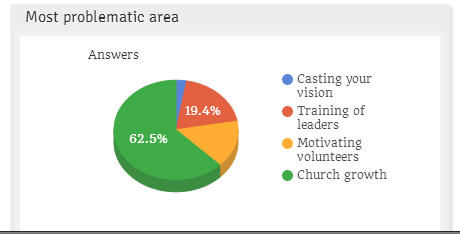




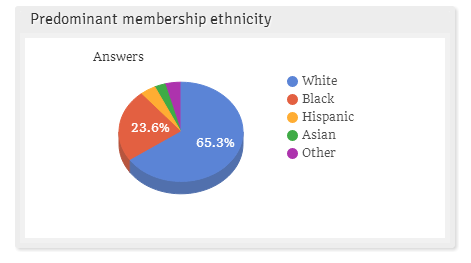


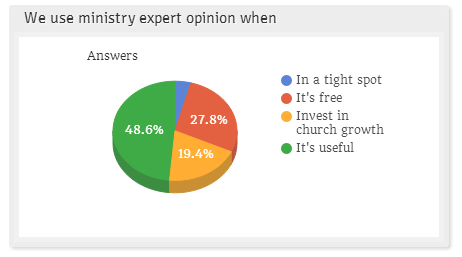


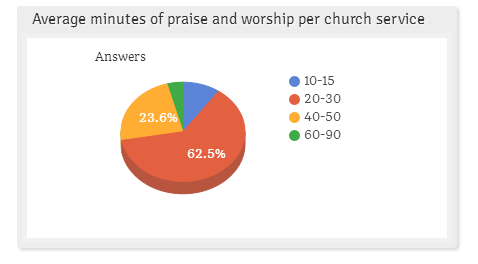




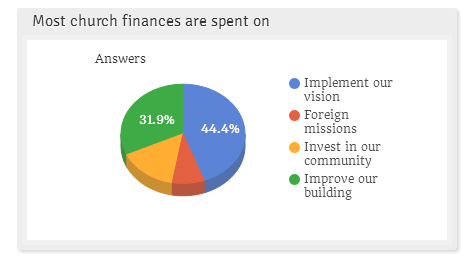
Trends and Issues Affecting the Next American Spirituality
 Three Trends and Three Issues Affecting Asian Missions” by David Barrett bring focus on obvious antipode of missionary need in the Western hemisphere today. The Macedonian Call to 3.7 billion Asian people with some 9% Christians is no small issue in global missions. At the same time, America becoming the 3rd largest mission field in the world is the obvious missions gap in the Western hemisphere. The parallels in post-modernity are many.
Three Trends and Three Issues Affecting Asian Missions” by David Barrett bring focus on obvious antipode of missionary need in the Western hemisphere today. The Macedonian Call to 3.7 billion Asian people with some 9% Christians is no small issue in global missions. At the same time, America becoming the 3rd largest mission field in the world is the obvious missions gap in the Western hemisphere. The parallels in post-modernity are many.
About 20 years ago, a book called “The Next American Spirituality” summarized the culture of today’s American spirituality and its relation to the apostolic church. The main question is, “What would a theology of the church look like that took seriously the fact that North America is now itself a mission field?”
To answer the question, Gallup and Jones examined how America does Biblical spirituality, using the gathered data to analyze its shift and direction. According to their survey, the marks of the next American spirituality were going to be (in short):
1. Bull-market church growth
2. Self-centered religion of me and thee
3. Hunger for experience – any experience
4. Search of roots amid the relativism
5. Quest for community resulting in self-belongingness and self-realization
In our current context of ministry two decades later, all of the above signs are evident and true. This is due on hand to the constant shift in the cultural paradigm, as well as the obvious shift in the identity and practices of the Christian church in the postmodern context. It almost seems like instead of being the model, the church is following a model, which not only changes the churches identity but interferes with its original evangelistic goal and global mission.
Hope for the Hippocampus
A Biblical View of the City: Gateways in Modern Day Missions
The city attracts multitudes of people, which makes a desired center for evangelism. Jesus used the city to present His ministry. Paul and the Early Church made it a goal to their mission to establish a new church as a community of believers in many cities of importance within the ancient world. The city strategy has not changed in modern day missions either. Recent analysis of migrant churches in the United States reveals the predominant majority of them are located in cities which have a high influxation and concentration of immigrants. Such localities are called “gateway cities”. Immigrants typically enter the United States through one of these cities and settle there. These areas contain over half of the foreign-born population in the United States as follows:
1. New York, NY Foreign born population 18.7%
2. Los Angeles, CA Foreign born population 27.1%
3. Houston, TX Foreign born population 12.3%
4. Washington, DC Foreign born population 8.6%
5. Miami, FL Foreign born population 33.6%
6. Chicago, IL Foreign born population 11.1%
7. San Francisco, CA Foreign born population 20.0%








